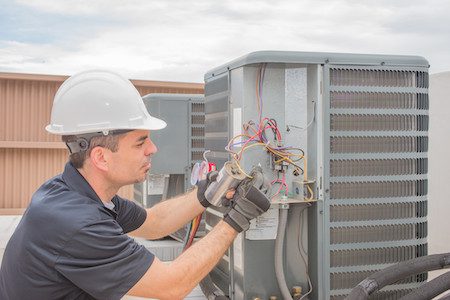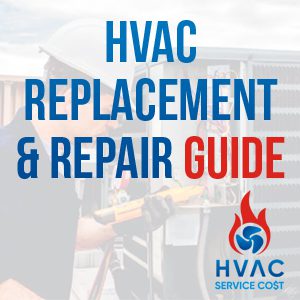
Feeling the Heat: 5 Telltale Signs It’s Time to Replace Your HVAC System
A well-functioning heating, ventilation, and air conditioning (HVAC) system is essential for maintaining a comfortable and healthy living environment. However, like any other appliance, HVAC systems have a finite lifespan and will eventually need replacement. In this blog, we’ll explore the top 5 telltale signs that it’s time to replace your HVAC system, helping you make an informed decision and avoid potential discomfort or costly repairs.
COMPARE QUOTES NOWFrequent Repairs and Rising Costs
One of the most apparent signs that it’s time to replace your HVAC system is the frequency of repairs and increasing costs. As your system ages, it becomes more prone to breakdowns and issues, leading to a higher likelihood of needing repairs.
Key Indicators:
- Multiple repairs within a short period
- Cost of repairs approaching or exceeding the cost of a new system
- Inability to find replacement parts due to system age or obsolescence
Decreased Energy Efficiency and Rising Utility Bills
An aging HVAC system may struggle to maintain the desired temperature efficiently, leading to increased energy consumption and higher utility bills. If you’ve noticed a steady increase in your energy bills without any significant changes in usage patterns, it might be time to consider an HVAC replacement.
Key Indicators:
- Unexplained spikes in utility bills
- Decreased energy efficiency compared to newer models
- Difficulty maintaining a consistent temperature throughout your home

Uneven Heating or Cooling and Poor Airflow
If your HVAC system struggles to maintain consistent temperatures across different areas of your home or you notice weak airflow from your vents, it could be a sign that your system is no longer functioning optimally.
Key Indicators:
- Hot or cold spots in various areas of your home
- Insufficient airflow from vents
- The need to constantly adjust the thermostat to maintain comfort
Excessive Noise and Strange Odors
Unusual noises and unpleasant odors coming from your HVAC system can indicate that something is amiss. While some issues may be repairable, persistent problems could be a sign that your system is nearing the end of its lifespan and may need replacement.
Key Indicators:
- Persistent banging, rattling, or whistling noises
- Musty or burning odors emanating from your HVAC system
- Frequent issues with the blower motor or other components
Your HVAC System is Over 10-15 Years Old
The average lifespan of an HVAC system is approximately 10 to 15 years, depending on factors such as usage, maintenance, and system type. If your system is approaching or has exceeded this age range, it’s likely nearing the end of its useful life and may need replacement soon.
Key Indicators:
- System age exceeding 10-15 years
- Frequent breakdowns and costly repairs
- Obsolete technology and inefficient performance compared to newer models

Recognizing the Signs and Planning for Replacement
By keeping an eye out for these telltale signs, you can make an informed decision about when it’s time to replace your HVAC system. Investing in a new HVAC system not only ensures a comfortable and healthy living environment but can also save you money on energy bills and costly repairs in the long run. If you suspect your system is nearing the end of its lifespan, consult with an HVAC professional to discuss your options and plan for a timely and efficient replacement.
The Cost Savings of Replacing Your HVAC System
Upgrading to a new HVAC system can result in significant cost savings over time, both in terms of energy usage and maintenance expenses. Modern HVAC systems are designed to be more energy-efficient, resulting in lower utility bills and reduced energy consumption. Moreover, a new HVAC system is less likely to require frequent repairs, minimizing maintenance costs and providing more reliable performance.
COMPARE QUOTES NOWKey Cost Savings:
- Improved energy efficiency: Newer HVAC systems are designed to be more energy-efficient, which can result in monthly energy savings of up to 20% or more, depending on the system and usage patterns.
- Fewer repairs: A new HVAC system is less likely to require frequent repairs, reducing maintenance expenses and providing more reliable performance.
- Increased home value: An upgraded HVAC system can increase your home’s value, making it more attractive to potential buyers if you decide to sell your property.

The Average Cost of HVAC Replacement
The cost of replacing an HVAC system can vary greatly depending on factors such as the size of your home, the type of system being installed, and the complexity of the installation. On average, you can expect to pay anywhere between $4,000 and $12,000 for a new HVAC system, including installation costs. Here’s a rough breakdown of the average costs for various types of HVAC systems:
- Central air conditioning system: The average cost for a central air conditioning system, including installation, ranges from $3,500 to $7,500, depending on the size and efficiency of the unit.
- Furnace: A new furnace can cost anywhere from $2,500 to $7,500, including installation, with the price varying based on factors such as the type of fuel (natural gas, oil, or electric) and the size of the unit.
- Heat pump: Heat pumps can range in price from $4,000 to $8,000, including installation, depending on factors such as the type of heat pump (air-source or geothermal) and the size of the system.
- Ductless mini-split system: These systems, which provide both heating and cooling without the need for ductwork, typically cost between $3,000 and $10,000, including installation.
It’s important to note that these are average costs, and the actual cost of replacing your HVAC system may vary depending on factors such as your location, the complexity of the installation, and any additional upgrades or modifications required. To get an accurate estimate for your specific needs, it’s best to consult with a qualified HVAC professional and obtain multiple quotes before making a decision.
Investing in a New HVAC System for Long-Term Savings
By recognizing the signs that it’s time for an HVAC replacement, you can invest in a new system that not only provides increased comfort and reliability but also results in significant cost savings over time. Although the upfront cost of a new HVAC system can be substantial, the long-term savings in energy and maintenance expenses make it a worthwhile investment for many homeowners. Consult with a professional HVAC contractor to discuss your options and find the best solution for your home’s heating and cooling needs.
COMPARE QUOTES NOW


Leave a Reply